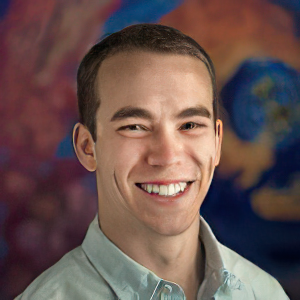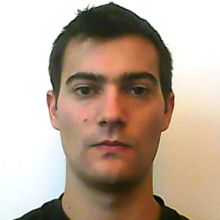
CSEM, Switzerland
e-mail: jamesdrosenthal@gmail.com
Time: 9:00 AM – 10:30 AM
Day: June 4, 2024

Abstract: FPGAs are an excellent tool for developing wireless systems because they provide high performance and adaptability while offering a clear path towards synthesis in silicon. A major barrier for using FPGAs, though, has been the high cost and complexity of setting up the FPGA tool chains. Over the last ten years, free and open-source FPGA tools have emerged that are making digital design with FPGAs cheaper and more accessible. In this tutorial, we will look at major free and open-source FPGA tools, walk through how to get started with FPGA development using these tools, and explore examples of how these tools can be used for research and development.
Short bio: James Rosenthal received the Ph.D. degree in electrical engineering in 2021 from the University of Washington, Seattle, WA, USA. After a postdoc at EPFL in Switzerland, he joined the Swiss Center for Electronics and Microfabrication (CSEM) as a Senior R&D engineer, focusing on the design of low-power systems for medical devices and backscatter communication. His research leverages open-source digital design tools to develop novel sensing and communication systems, including the first all-digital Bluetooth Low Energy (BLE)-compatible backscatter uplink.

Jeffrey Dungen
Reelyactive, Canada
e-mail: jeff@reelyactive.com
Time: 10:45 AM – 12:15 PM
Day: June 4, 2024
Abstract: Tags, tags, tags! 44.8 Billion RAIN RFID tag ICs and 5.4 Billion Bluetooth devices shipped in 2023 alone. That’s 50 Billion “things” that can be identified, using radio-frequencies, at a range of several metres. So, do we have reader/gateway infrastructure deployed every few metres throughout the physical spaces in which potential RFID applications abound (i.e. everywhere)? Not yet. Do we have, in those same physical spaces, edge processing infrastructure and middleware ensuring interoperability and facilitating data exchange within an ever-evolving ecosystem of software applications? Not yet. However, we may be closer than you think! This tutorial will provide an overview of the current state of RFID infrastructure, and present a path towards ubiquitous RFID infrastructure, including live demos and audience interaction.
Short bio: Jeffrey is a computer engineer and technology entrepreneur with two decades of experience in IoT and RFID startups. He is the co-founder and CEO of reelyActive whose mission is to put ambient data to work in order to enrich the human experience. Jeffrey has co-authored several IEEE publications, and leads the development of Pareto Anywhere open source IoT middleware which is used in industry and research around the world.
Nicolas Barbot
University of Grenoble Alpes, France
e-mail: nicolas.barbot@lcis.grenoble-inp.fr
Time: 90 minutes
Day: June 4, 2024

Abstract: In this presentation, we propose a simple low-cost SDR RFID UHF reader capable of reading a tag in real time. This reader is designed around a simple asynchronous OOK modulator in transmission and an envelope detector in reception. All tasks specific to the RFID protocol including clock recovery, data recovery and frame detection are handled in software by a Arduino Uno micro-controller. This reader is able to generate any RFID command supported by the protocol and to decode any message backscattered by the tag in real time. The details of hardware and software associated with this reader are released in open source for the community.
Short bio: Nicolas Barbot received the M.Sc. degree and Ph.D. degree from the University de Limoges, France in 2010 and 2013 respectively. His Ph.D. work in Xlim Laboratory was focused on error-correcting codes for the optical wireless channel. He also realized a post-doctoral work in joint source-channel decoding at L2S Laboratory, in Gif-sur-Yvette, France. Since September 2014, he has been an Assistant Professor at the Université Grenoble Alpes – Grenoble Institute of Technology, in Valence, France. His scientific background at LCIS Laboratory covers wireless communications systems based on backscattering principle which include classical RFID and chipless RFID. His research interest include transponders which can not be described by linear time-invariant systems. This gathers harmonic transponders which are based on the use of a non-linear component (Schottky diode) or linear time-variant transponders which are based on the modification of their response in the time domain. He also places special interests on antenna design and instrumentation based on these phenomena.